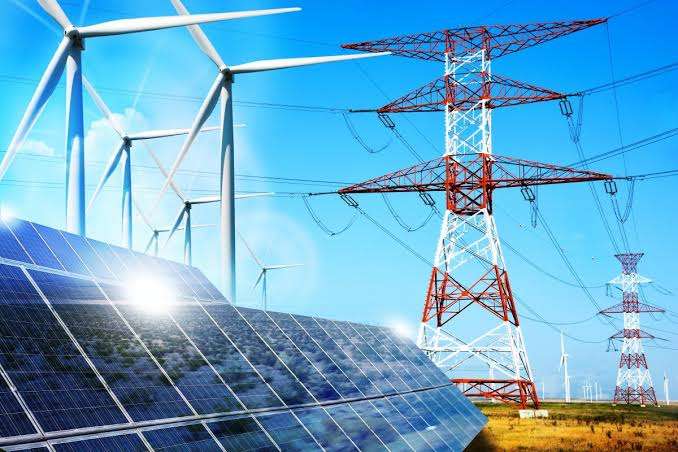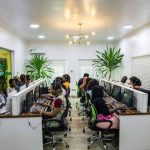As the global push for renewable energy intensifies, Africa remains a frontier for transformation. And a wave of startups are on the rise. These are innovators building solutions, powered by technology, and scaled by bold leadership.
From Lagos to Cairo and Nairobi to Cape Town, here are ten companies shaping the energy ecosystem in Africa through decentralised solar systems, smart grids, mobile payments, and scalable innovation.
Salpha Energy
Founded in 2017 by Sandra Chukwudozie, Salpha Energy is leading Nigeria’s clean energy transition with its locally manufactured solar systems.
Its focus on delivering affordable, clean electricity to off-grid homes and small businesses across Africa sets it apart as both an energy and social impact player.
Salpha has already impacted over 2 million people, and a recent Ashden Award win and $1.3 million funding from All On, a Shell-backed impact investor signal global recognition for the company.
PEG Africa
Founded by Hugh Whalan, and Nate Heller in 2013, PEG Africa has become a leader in solar home system distribution on a financing model.
Operating across Ghana, Ivory Coast, and Senegal, its proposition lies in mobile money-enabled repayment, which allows low-income households to access clean energy without the financial barrier.
Greenlight Planet (Sun King)
Greenlight Planet, also known as Sun King is a pioneer in Africa’s solar lantern and home lighting space. It was founded by T. Patrick Walsh, Mayur Patel, and Anish Thakkar in 2009.
Operating in over 65 countries and reaching more than 150 million users, Greenlight has set a high bar for scale and sustainability in solar innovation for off-grid populations.
Nuru Energy
Founded by Jonathan Shaw in 2015, Nuru Energy is tackling Africa’s most complex energy problems with large-scale solar microgrids.
By powering urban communities, health centres, and schools in Democratic Republic of Congo, Nuru is building essential infrastructure where the national grid has never reached. The company is one of those leading Africa’s energy niche.
Daystar Power
In 2017, Christian Wessels, and Jasper Graf von Hardenberg founded Daystar Power. The company targets commercial and industrial clients with hybrid solar systems that combine solar energy with battery storage and backup diesel generators.
Daystar Power is a front-runner in decentralised commercial energy supply in West Africa, with its offerings across many countries in Africa.
KarmSolar
Founded in 2011 by Ahmed Zahran, Omar Hosny, and Tamer Essawy, KarmSolar provides several sectors in Egypt with renewable and clean energy.
KarmSolar is a leader in Africa’s solar revolution, providing solar energy solutions to agricultural, commercial, and industrial clients. The company also offers integrated power purchase agreements for its clients without upfront investment.
Qotto
Qotto is a French startup specialising in the development of solar energy solutions for off-grid areas. Founded in 2016, by Jean-Baptiste Lenoir, and Cédric Tomissi, Qotto focuses on rural electrification in Benin, Burkina Faso, Ivory Coast, and other Francophone countries.
It enables customers in remote areas to access solar home systems via low-risk, low-cost payments. The integration of telecommunications and financial services into its solar product offering has earned Qotto a reputation for driving both energy and digital inclusion.
SolarNow
Founded in 2011 by Willem Nolens, SolarNow serves Ugandans with modular solar systems backed by strong customer support and in-house financing.
It has evolved from a retail-based model to an enterprise-focused energy solutions provider, serving clients in hospitality, education, oil and gas, and real estate.
Zola Electric
ZOLA Electric, initially founded as Off Grid Electric in 2011 by Xavier Helgesen, Erica Mackey, and Joshua Pierce, started in Tanzania. It is one of Africa’s best-funded solar startups.
Also operating in Rwanda, Côte d’Ivoire, Nigeria, and other African countries, Zola’s modular energy systems integrate solar, storage, and digital monitoring. Its focus is on providing grid-like electricity for the African consumer.
Havenhill Synergy
Olusegun Odunaiya, a Nigerian entrepreneur and engineer, founded Havenhill Synergy in 2010 to provide clean, reliable electricity to rural communities through solar mini-grids and standalone systems.
The company uses solar energy to generate clean, safe, cost-effective and sustainable electricity. It has played a critical role in Nigeria’s decentralised energy transition, particularly through participation in the World Bank’s Nigeria Electrification Project (NEP).
A Continent in Transition
These energy companies aren’t just plugging the power gap, they are redesigning Africa’s energy future. From microgrid builders to financing innovators, they represent a cross-section of what’s possible when local knowledge, impact investment, and cutting-edge technology intersect.
And while each brings something unique to the table, companies like Salpha Energy prove that homegrown, women-led, and locally manufactured can be the blueprint for powering progress across the continent.
Whether it’s Salpha Energy, SolarNow, or Nuru Energy, one thing is clear: Africa’s clean energy future is already being built, and these are the people building it.
Solar Energy FAQs
How long do solar panels last?
Solar panels typically last for 25 to 30 years or more. Their efficiency may decrease over time, but most manufacturers guarantee a certain level of performance for an extended period.
Which country is No 1 in solar energy?
China is the leader in solar energy, with many top solar panel manufacturers based there. The country’s dominance in the solar industry is due to its large-scale production and innovative technologies. It dominates the solar energy sector, producing over 77% of the world’s solar panels and
Which solar is strong?
Monocrystalline solar panels are generally considered to be the strongest and most efficient type of solar panel. They have a high efficiency rating, typically above 22%, and can produce over 300 watts of power per panel. The panels are also known for their uniform dark appearance and rounded edges.
What type of inverter is best for solar?
The best type of inverter for solar depends on your specific needs. There are several options, including microinverters, string inverters, and hybrid inverters. Microinverters convert DC output from individual solar panels to AC electricity, allowing for higher energy production. String inverters are suitable for larger solar installations and are often more cost-effective. Hybrid inverters combine the benefits of string and microinverters, offering flexibility and efficiency.





